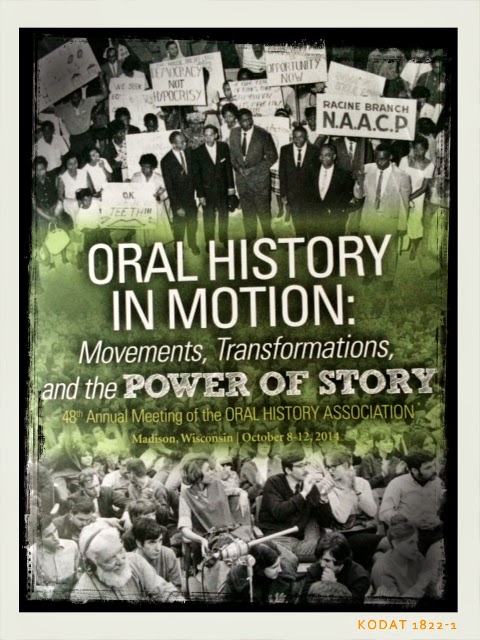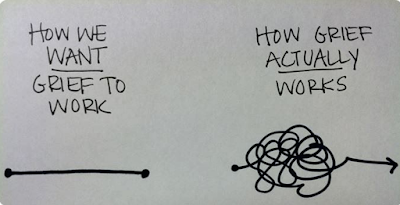Return to Sender: Lessons from Boston College' s Belfast Project
On Tuesday, May 6th, Boston College’s Director of
Public Affairs, Jack Dunn, announced that ‘The Belfast Project” oral history
initiative would honor all requests from participants to return recordings and
transcripts of interviews not currently in use as evidence in the murder investigation of Jean McConville, a Belfast widow abducted and murdered by the IRA in 1972. The
college will keep no copies. The information in the interviews will remain known
only to the interviewers, a few Boston College employees and William Young, a
federal district court judge who read the transcripts to determine which ones should
be delivered to Northern Irish authorities under a treaty governing exchanges of information between nations for the purposes
of law enforcement.
Boston College’s decision came on the heels of events last week,
when the Police Service of Northern Ireland held Sinn Féin leader Gerry Adams
for questioning about his involvement in the McConville murder. Evidence came directly from the Belfast
Project interviews. The move by the PSNI
invited new scrutiny on an oral history project that has already been the focus
of very public controversy, as Beth McMurtrie laid out in her detailed investigative piece published last January in The Chronicle of Higher Education.
News that the recordings and transcripts would be returned was
surely met with relief by former republican and loyalist combatants who had
agreed to share their stories from the front lines of Northern Ireland’s
Troubles, a thirty-year period of political turmoil and civil violence which
left 3,700 people dead and approximately 10,000 injured. Those interviewed had been promised confidentiality
in exchange for honesty. Interviewees
revealed information about activities “the dogs on the street” may have known
about, but which were rarely discussed on the record.
For Anthony McIntyre, the former republican prisoner who conducted interviews with fellow ex-combatants, the
public announcement was a “symbolic washing of the hands” on the part of Boston
College, a way to distance itself from criticism emerging about the project. While not pleased at being cast adrift by college administrators, McIntyre and others closely associated with the project agree that the information on the recordings was not safeguarded well.
While the case has implications for a wide scope of scholarly
research, oral historians in particular have been watching the situation
closely since 2011, when information from the interviews was first subpoenaed
on the basis of material that project co-director, journalist Ed Moloney,
included in his book Voices from the Grave: Two Men’s War in Ireland. Moloney’s use of interviews by former IRA Belfast Brigade
commander Brendan Hughes was in accordance with contracts signed by each
interviewee forbidding access to interviews until after a participant’s
death. Hughes died in 2008; however,
many of the people he discussed on the record remained very much alive.
An
increasingly public and vitriolic disagreement has taken place about who is to
blame for the exposure of paramilitary secrets, heating up over the past week
when Northern Ireland’s republican community reacted to Adams’ arrest. They slammed the Belfast Project as a vehicle
for former republicans disgruntled by the way the peace process unfolded to air
dirty laundry, lionize themselves and castigate their enemies within the
movement. McIntyre has long been a vocal opponent of both Gerry Adams and
post-1998 republicanism, fueling these suspicions.
 |
| Photo credit: http://extramuralactivity.com/ |
The
project director, Moloney, and interviewers, McIntyre and Wilson McArthur, who
have no professional experience with higher education institutions, say they
took Boston College at its word that the material would remain
confidential. They believed the college
would be an honest broker and that BC’s Burns Library Special Collections would
not only process, catalogue and preserve the collection, but would keep the
information it contained confidential.
College spokespeople say that project directors knew from the start that
the information would only be protected as “far as American law will allow” and
that Bob O’Neill, head of the Burns Library, specifically indicated that it was
not clear the commitment to protect the information could withstand a federal
court subpoena.
The
question remains: What can oral and public historians engaged in collecting and
interpreting histories about controversial, divisive and difficult issues and
events learn from the Belfast Project and its fallout?
First,
if you are serious about collecting and archiving sensitive historical
material, put your publishing ambitions aside for the time being. Ed Moloney’s use of information
provided
in Hughes’ interview and his discussion about it it with a Boston Globe reporter in 2010
(Thomas
Gagen, “Adams’ Secret, Now His Shame,” The Boston Globe, January 07, 2010) opened up this can of worms. It also broke promises.
Next,
when addressing controversial histories, it is even more important to remember
that interviews are not objective, disinterested, or omniscient sources. We all know this, but in this case, the media
keeps forgetting it. Obsession with
“what is on the tapes” obscures the larger issues around collecting histories
in conflict and recent post-conflict zones, let alone the interpretative challenges of working with oral testimony.
Third,
in cases like this one, the institutional review board (IRB) is your
friend. Establishing protocols and
taking the necessary precautions to locate control of materials with the
interviewees, instead of with the institutions, probably would have made a
difference in this case, where interviewees didn’t have final say on edits,
redactions, deletions, pseudonyms or anonymity, etc. They talked,
and that was that. Getting involved with
high-stakes history means taking seriously that, well, the stakes are high.










good post.
ReplyDelete